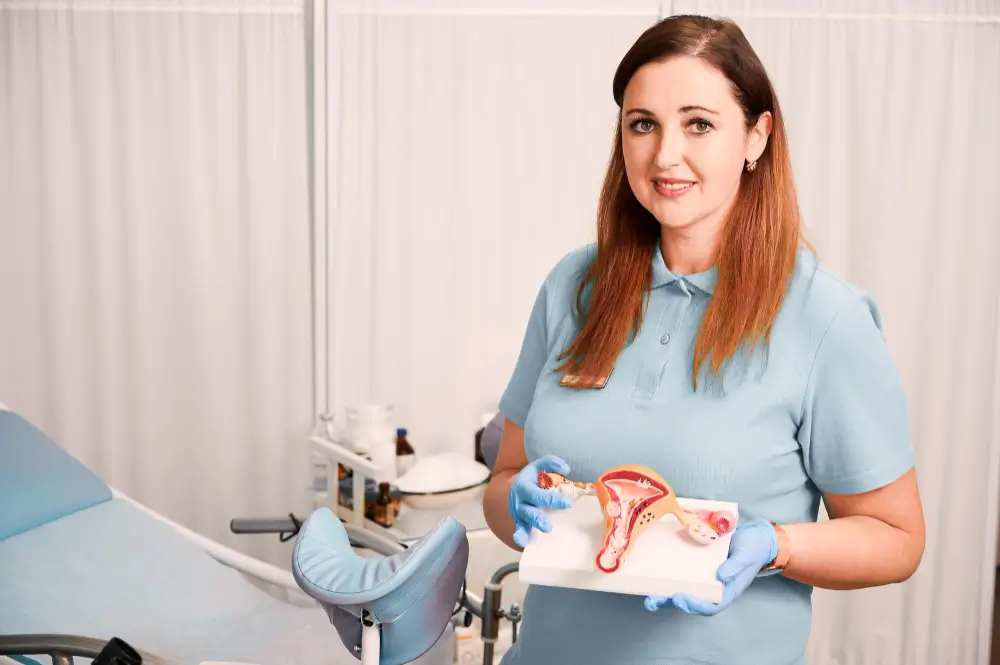For couples trying to conceive, choosing the right fertility treatment can be overwhelming. Two commonly discussed options are IVF vs IUI. Both aim to increase the chances of pregnancy, but they differ in procedure, success rates, and suitability. Understanding what is IUI vs IVF, comparing insemination vs IVF and knowing when each treatment is recommended can help couples make informed decisions about their fertility journey.
Understanding IUI (Intrauterine Insemination)
Intrauterine insemination (IUI) is a simpler, less invasive fertility treatment. It involves placing sperm directly into the uterus around ovulation to improve the likelihood of fertilization. IUI is often recommended for:
- Couples with mild male infertility, such as low sperm count or motility issues.
- Women with cervical mucus problems that may hinder sperm movement.
- Couples facing unexplained infertility.
IUI Procedure Step by Step
- Monitoring Ovulation – Blood tests and ultrasounds track the timing of ovulation.
- Fertility Medications – Sometimes used to stimulate egg production and improve success chances.
- Sperm Preparation – Sperm is collected and “washed” to concentrate motile, healthy sperm.
- Insemination – A thin catheter deposits sperm directly into the uterus.
Proper preparation is key, and patients should follow guidance on how to prepare for IUI for female, including maintaining a healthy lifestyle and avoiding smoking or alcohol.
Understanding IVF (In Vitro Fertilization)
IVF is a more advanced procedure where eggs are retrieved from the ovaries and fertilized with sperm in a lab. The resulting embryos are then transferred to the uterus. IVF is recommended for:
- Severe male infertility or low sperm count.
- Blocked or damaged fallopian tubes.
- Women who have had unsuccessful IUI cycles.
- Advanced maternal age or complex fertility challenges.
IVF involves hormone injections, egg retrieval, fertilization in the lab, and embryo transfer. While more complex than IUI, IVF offers higher control over fertilization and embryo selection, increasing the chances of a successful pregnancy.
Comparing Pregnancy Chances: IVF vs IUI
| Factor | IUI | IVF |
|---|---|---|
| Success Rate | ~10–20% per cycle | ~40–50% per cycle (varies by age) |
| Invasiveness | Low | Moderate to high |
| Procedure Complexity | Simple | Complex |
| Cost | Lower | Higher |
| Best For | Mild fertility issues | Severe infertility |
While IUI is less invasive and more affordable, IVF consistently provides higher pregnancy rates, particularly for older women or couples with complex fertility issues.
When Is IUI Recommended?
IUI is often the first step for couples with mild fertility issues. It is simple, affordable, and requires minimal intervention. However, if multiple IUI cycles fail, fertility specialists often suggest IVF for better chances of success.
How Many Injections for IVF Treatment?
A key part of IVF involves IVF medications, which require daily hormone injections for around 10–14 days to stimulate egg production. Monitoring appointments track follicle growth, ensuring the best eggs are retrieved for fertilization. While some patients worry about injections, most report manageable discomfort and effective results.

Role of Egg Donor Agencies
For couples who require donor eggs, working with a reputable Egg donation agency in USA like Indian Egg Donors ensures access to screened, verified donors. Agencies provide transparency, guidance, and support, which can significantly improve IVF success rates when natural eggs are not viable.
Final Thoughts
Choosing between IVF vs IUI depends on your fertility challenges, age, and previous treatment history. IUI may be a good first option for mild infertility, but IVF offers higher pregnancy chances, especially for complex cases. By understanding insemination vs IVF, success rates, and treatment procedures, couples can make informed decisions. Consulting with a fertility specialist and considering services from a trusted Egg donor agency ensures access to reliable resources and better chances of success in the journey toward parenthood.
Ready to Begin Your Fertility Journey?
Whether you’re exploring IUI or IVF, understanding your options is the first step toward building your family. Our experienced fertility specialists are here to guide you through every stage — from initial consultation to successful conception.
Contact us today at (212) 661-7177 to discuss your personalized treatment plan and take a confident step toward your dream of parenthood.
Frequently Asked Questions:-
Q. What is the main difference between IVF and IUI?
Ans: The key difference between IVF vs IUI lies in the procedure. Intrauterine insemination (IUI) involves placing sperm directly into the uterus to help with fertilization, while IVF involves retrieving eggs, fertilizing them in a lab, and transferring embryos to the uterus for implantation.
Q. When is IUI recommended for couples?
Ans: IUI is usually recommended for couples with mild fertility issues, such as low sperm count, cervical mucus problems or unexplained infertility. It’s often the first step before moving to IVF if conception doesn’t occur naturally.
Q. How to prepare for IUI for females?
Women preparing for an IUI procedure should maintain a healthy lifestyle, manage stress, and avoid alcohol or smoking. Following the doctor’s guidance on timing, fertility medications, and monitoring ovulation helps increase success rates.
Q. How many injections are needed during IVF treatment?
Ans: During IVF treatment, patients typically take hormone injections for about 10–14 days to stimulate egg production. These IVF medications help doctors retrieve mature eggs for fertilization in the lab, increasing the chances of a successful IVF pregnancy.
Q. Can using an egg donor improve IVF success?
Ans: Yes. Working with a trusted egg donation agency in USA ensures access to carefully screened and healthy donors. This support can significantly improve success rates for couples who need donor eggs to achieve pregnancy.

Dr. Pooja Patel
Dr. Pooja Patel is a Chief Surrogacy Coordinator at Surrogacy4all. She has 10 years of experience in Anesthesiology and critical care medicine.
She received her medical degree from Seth GS Medical College and K.E.M Hospital in India. She then completed an internship. She finished her Anesthesia residency at Grant Govt Medical College and JJ Group of Hospitals in India.










